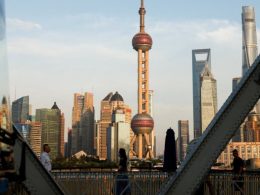Unlock the White House Watch newsletter for free
Your guide to what the 2024 US election means for Washington and the world
Off with their heads.” This is the sentence that the Queen of Hearts, the incarnation of monarchical caprice in Alice’s Adventures in Wonderland, adores pronouncing. She might be entertaining. The reality, however, is not. Throughout history, absolute rulers have brought misery upon their people and even their families. Their courts are hotbeds of sycophancy, favouritism and corruption. This is the price of arbitrary despotism.
At its best, the story of the English-speaking peoples, including the US, has been one of taming such arbitrary power. It was a lengthy and hard struggle, from Magna Carta in 1215 to the exile of James II and the declaration of the Bill of Rights in 1689, via the civil war of the early 17th century and execution of Charles I in 1649. Those who condemned the dethroned monarch to execution rightly found him guilty of seeking “an unlimited and tyrannical power to rule according to his will”.
The Declaration of Independence and ratification of the US Constitution were further steps in this war on absolutism. So, too, was the US civil war, which established the principle that nobody should be allowed to hold absolute power over another person.
What is happening today in the US is of historic and also global significance, because it is about whether constraints on the arbitrary exercise of power will endure. Nobody with any knowledge of the catastrophes of the 20th century can be unaware of the significance of this issue.
Replacing tyranny with the rule of law, the role of courts in determining that law and that of the legislature in making it serves both moral and practical goals. Only in such a state can people feel safe against despotism. A government that ignores the constraints is a tyranny. As commentator Andrew Sullivan observes: “America is about legal authority. Trump is about raw power. America was founded on a faith in reason. Trump embraces his own instinct alone.” We are witnessing a long-planned assault on the Republic itself.

We have also been given an object lesson in the economic costs, which wealthy and powerful Trump supporters blindly ignored. As I noted last June, “Biden may be old. But Trump is crazy and, alas, he is not amusingly crazy: he is dangerously crazy. Trump’s instincts are also those of a dictator.” So, indeed they have proved to be.
The trade wars Trump has launched are a demonstration of the dangers. Astoundingly, the FT’s “tariff tracker” lists 25 significant policy announcements by the US and the countries it has been assailing in less than three months. It records seven big trade policy announcements between April 2 and 11 alone. These included “reciprocal” tariffs on all countries on April 2, the subsequent reduction of these, after market turmoil, to 10 per cent for 90 days, along with the retaliation cycle between the US and China, has led to prohibitive tariffs on both sides.

We have also seen falling stock prices, high market volatility and, even more disturbingly, the dollar’s fall even while yields on Treasuries rose. It appeared as though capital started to flee from the US itself. No wonder Trump blinked. While “tariffing” the world, he should have known that foreigners held $8.5tn of US Treasuries at the end of 2024, close to a quarter of total public debt.
The way Trump is operating his trade war raises even bigger concerns than the economics of protectionism itself. Yes, tariffs are bad policy instruments: they impose a strong home-market bias on production of tradeable goods and high taxation — indirect (via appreciation of the real exchange rate) and direct (via higher prices of inputs) — on exports.
Yet even more serious than this is the way they are now being used. Tariffs are taxes. In the 1970s, Congress unwisely granted the president the power to impose these taxes at will, in response to an “emergency” however imaginary. This is classic despotism. Now, unsurprisingly, Trump is exploiting this power to create chaos. Nobody can sensibly believe this will reindustrialise the US. It will rather paralyse business, raise prices and slow the economy.
Avoiding such chaos was one of the benefits of ending arbitrary power. By the end of the 17th century, the British state became able to borrow vast sums long term and cheaply. That was the fruit of trust. It was one of the foundations of the flourishing of finance in the 18th and 19th centuries. That in turn was a powerful stimulus to the industrial revolution and subsequent rise in prosperity.
Unpredictable despots generate waste, fear and pervasive uncertainty. These are enemies of prosperity. Trump’s constantly shifting trade wars and demolition of the global trading system are currently demonstrating this.
Now the US is supposed to reach trade deals with more than 180 countries in some 84 days. That is ridiculous. Even if “deals” are reached, will they last? One must doubt it. Can businesses plan long-term investment amid the chaos it is seeing? Business, after all, must think in years, not days. With its party bureaucracy, Xi Jinping’s China now provides more predictability for business than the US. That is shocking. It is also scandalous. People who supported Trump should have known that, fully liberated, he was bound to sow chaos.
The cult of the “strongman” is a perennial folly. We know that nobody can be trusted with absolute power, least of all the demagogues who seek it. The one good thing Trump’s trade policies are achieving is to demonstrate this yet again. They are harbingers of chaos. The world’s challenge is to survive the folly. The US’s is to end it.












